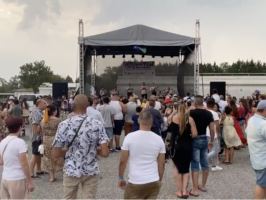In Sokoľany, whose written records date back to the 13th century, they organize a Village Day celebration every year (the tradition was disrupted only in the last two years by covid).
However, this year on September 10, it happened for the first time that the celebration was divided into two parts – the Roma had a reception in the settlement, the main celebration was at the football field. Someone says that it was segregation, someone on the contrary – that it was a bonus for the Roma.
In addition, there are suspicions of vote buying for the local municipal elections in a Roma settlement in Eastern Slovakia. Unfortunately, not uncommon in many places.
- Oslava dňa obce na východe: Rómovia v osade, zvyšok dediny na ihrisku. In: Dennik. 23.09.2022. https://dennikn.sk/3023170/oslava-dna-obce-na-vychode-romovia-v-osade-zvysok-dediny-na-ihrisku/
- Kupovanie hlasov Rómov či diskriminácia? Jednu akciu mali v osade, druhú v obci.. In: SME Korzar. 21.09.2022.
https://kosice.korzar.sme.sk/c/23013454/romom-v-osade-vsetkym-v-dedine-starosta-pred-volbami-urobil-dve-oslavy-dna-obce.html
